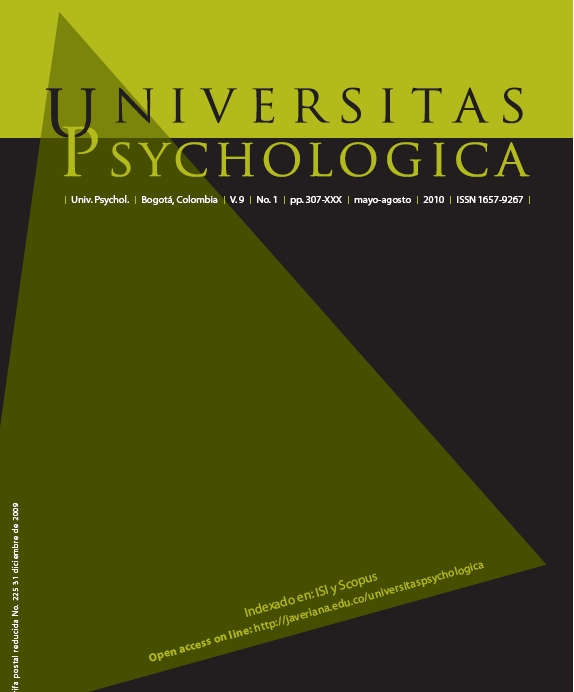Resumen
La masturbación es una conducta sexual frecuentemente asociada a la culpabilidad sexual. Ante la ausencia de instrumentos para evaluar las actitudes hacia esta conducta, este estudio pretende examinar algunas propiedades psicométricas de la versión española del Inventario de Actitudes Negativas hacia la Masturbación de Abramson y Mosher (IANM), el cual fue aplicado junto con la Encuesta de Opinión Sexual a una muestra de 610 adolescentes salvadoreños (308 varones y 302 mujeres). El análisis factorial exploratorio aisló tres factores: Afectos negativos en experiencias personales con la masturbación (α = 0,85), Actitudes negativas hacia aspectos positivos de la masturbación (α = 0,76) y Falsas creencias acerca de la naturaleza nociva de la masturbación (α = 0,61). No se encontraron diferencias por sexo en la puntuación total de la escala ni en dos de las tres subescalas, pero sí en algunos de los ítems en los que las mujeres presentaban una actitud más negativa hacia la masturbación. La erotofilia se asoció inversamente a las actitudes negativas hacia la masturbación.
Esta revista científica se encuentra registrada bajo la licencia Creative Commons Reconocimiento 4.0 Internacional. Por lo tanto, esta obra se puede reproducir, distribuir y comunicar públicamente en formato digital, siempre que se reconozca el nombre de los autores y a la Pontificia Universidad Javeriana. Se permite citar, adaptar, transformar, autoarchivar, republicar y crear a partir del material, para cualquier finalidad (incluso comercial), siempre que se reconozca adecuadamente la autoría, se proporcione un enlace a la obra original y se indique si se han realizado cambios. La Pontificia Universidad Javeriana no retiene los derechos sobre las obras publicadas y los contenidos son responsabilidad exclusiva de los autores, quienes conservan sus derechos morales, intelectuales, de privacidad y publicidad. El aval sobre la intervención de la obra (revisión, corrección de estilo, traducción, diagramación) y su posterior divulgación se otorga mediante una licencia de uso y no a través de una cesión de derechos, lo que representa que la revista y la Pontificia Universidad Javeriana se eximen de cualquier responsabilidad que se pueda derivar de una mala práctica ética por parte de los autores. En consecuencia de la protección brindada por la licencia de uso, la revista no se encuentra en la obligación de publicar retractaciones o modificar la información ya publicada, a no ser que la errata surja del proceso de gestión editorial. La publicación de contenidos en esta revista no representa regalías para los contribuyentes.


